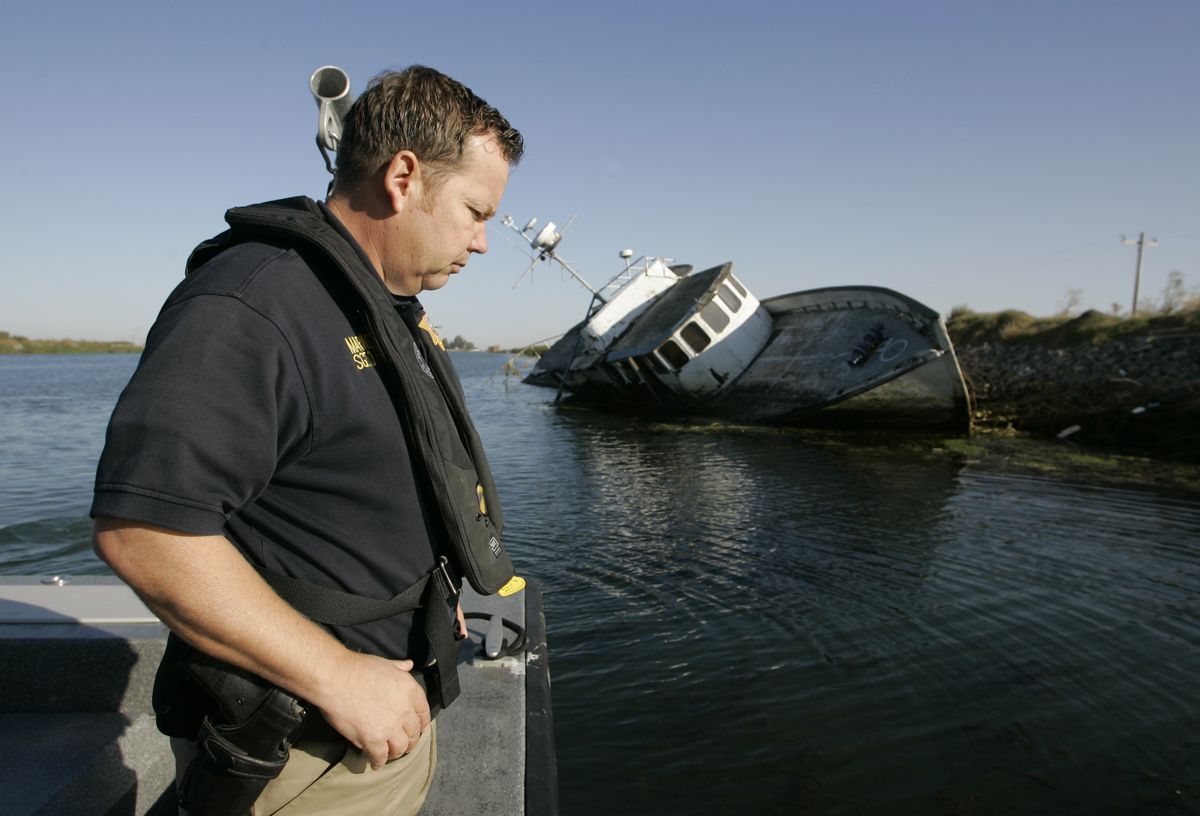Strapped owners giving up boats
Economic woes hit America’s waterfronts

SAN FRANCISCO – From Southern California to Maine, the foundering economy, high fuel prices and poor fishing have driven boat owners to abandon perhaps thousands of vessels on the waterfront, where they are beginning to break up and sink, leaking oil and other pollutants.
Boats have long been a barometer of consumer confidence, disposable income and the overall state of the economy. Now, marina and harbor officials are reporting a sudden increase in the past year in the number of deserted pleasure boats and working vessels.
In Antioch, a town about 45 miles east of San Francisco, harbormaster John Cruger-Hansen showed up at his marina one day last spring to find the horizon changed overnight. On the San Joaquin River, he saw an old crane, a rusted barge, a tugboat and an assortment of other junked boats, all of which had been hauled in and left illegally.
“Boating is a pure luxury and one of the first things to go when the economy turns south,” said Cruger-Hansen, who expects to see more abandoned boats by year’s end. “If it comes to the point of putting food on the table or paying the boat slip fee, it’s the boat that goes.”
Unlike cars, wooden and fiberglass boats have virtually no scrap value. So rather than pay the high cost of hauling their boats to the dump, people ditch them or sell them for as little as $1 to anyone who will take them. The boats often break up and go under, or pass into the underground economy of nighttime scuttlers – who, for a fee, remove traceable identification numbers, strip out salvageable items and sink the vessels.
“Oil, gasoline and sewage from these boats leaks into the aquatic environment,” said Sejal Choksi, program director at San Francisco Baykeeper, an environmental organization. Boat paint often contains chromium, lead, mercury and other toxic chemicals, and as a vessel deteriorates, the coating flakes off and settles on the sea floor or river bottom, where fish swallow it, Choksi said.
Government officials and environmental groups are calling for more programs and funding to prevent and clean up the junkyard flotillas.
But removing just one sunken sailboat can cost upward of $12,000, and taking away larger commercial vessels is even more expensive.
With nearly a million registered boats, California – the second-largest boating state behind Florida – spends about $500,000 each year removing deserted recreational boats. The state has no money to remove commercial boats, and unless they are leaking oil or blocking a navigation channel, the Coast Guard is not required to take them away.
Meanwhile, high fuel prices and several disastrous years in the nation’s fishing industry have led fishermen to desert salmon boats in Washington state, crab boats in Maryland, trawlers in Oregon and lobster boats in Florida.
In recent months, an increasing number of powerboat and sailboat owners have been failing to pay their slip fees, according to Randy Short, chief executive of Almar Management Inc., a company with 16 luxury marinas in California and Hawaii.
“People get financially upside-down and ditch their boats,” Short said, “and you can just forget trying to sell a power boat right now. No one is buying.”